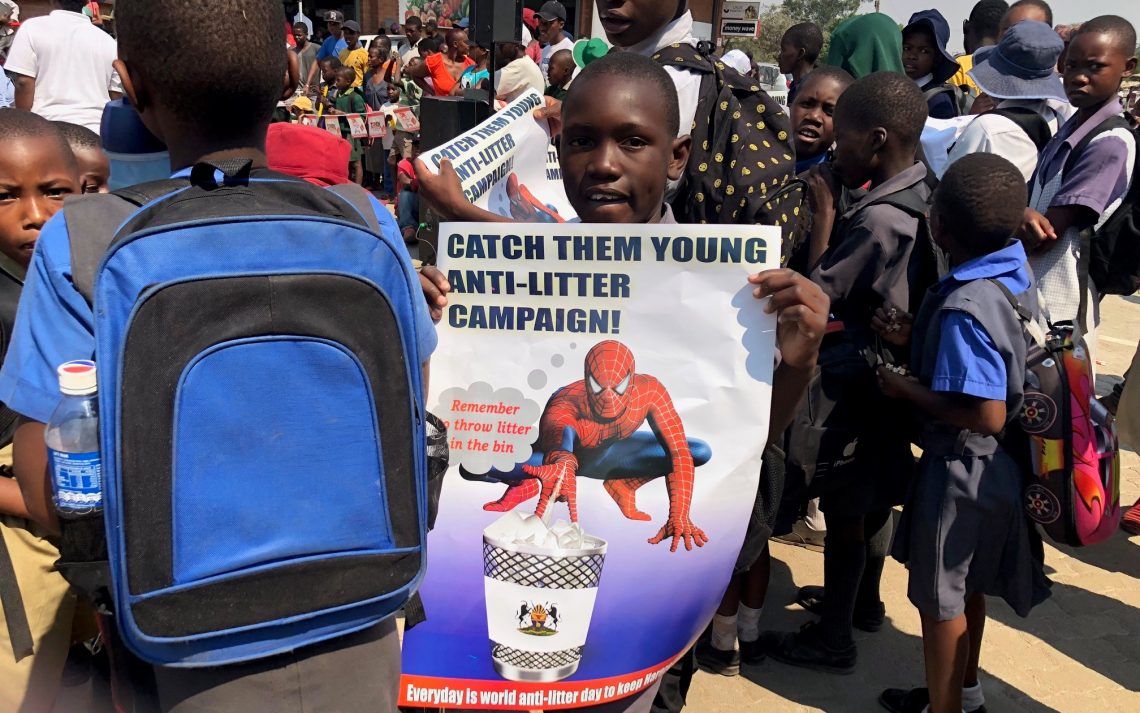The United Nations in Zimbabwe in partnership with Classic 263 – Zimbabwe Broadcasting Corporation radio station – rolled-out yesterday a roadshow in Glenview 3, one of the epicentres of the Cholera outbreak as part of increasing community engagement to contain the cholera outbreak.
Speaking on the side of the roadshow, UN Communications Specialist, Sirak Gebrehiwot said, “The aim of the roadshow was to raise awareness on the Cholera outbreak and ensure that people are sufficiently educated on the different ways to prevent the continued spread of the disease.” “The organising team has messages on prevention of cholera approved by the Ministry of Health and UN agencies involved in the response efforts to curb the cholera outbreak”, said Gebrehiwot.
Since the Cholera outbreak was first noticed on 5 September 2018, over 5000 cases have been reported with 38 deaths – most of which were in Harare. Cases of the disease have since spread to Chitungwiza, Marondera, Gokwe North, and Buhera to name a few. Although the country remains on high alert, the cases of Cholera reported per day have decreased significantly from a highest of 618 cases on 9 September to 108 cases on 19 September.
Members of the United Nations Communications Group that took part in the awareness raising campaign include: World Health Organization (WHO); United Nations Information Centre (UNIC); and United Nations Children’s Fund (UNICEF). Other partners including the Harare City, Environmental Management Authority, Oxfam, youth artists and medical practitioners were part of the awareness raising campaign.
Addressing the communities in Glenview 3, Tafadzwa Mwale, UNIC Information Officer said, “It is critical for the community to adhere to the joint messages from Ministry of Health and Child Care, UNICEF and WHO, like avoiding shaking other people’s hands during a cholera outbreak.” Ms Mwale encouraged the gathering to use alternative ways of greeting people ensuring minimal hand contact.
Factors that increase the risk of cholera and typhoid outbreaks in Zimbabwe include low levels of health literacy, poor sanitation, inadequate provision of safe drinking water and poor personal hygiene practices.
The UN outreach and awareness raising team shared information materials relevant for the prevention of cholera which include: the need to wash hands with soap before eating or cooking; avoid shaking hands at public gatherings particularly funerals; drink boiled or treated water; wash fruits or vegetables under safe running water; no to open defecation and litter. Other information included to cook food thoroughly and eat whilst hot and that all cholera related deaths should be supervised by a health worker to prevent the spread of the disease.
Noting that cholera and typhoid can be prevented by maintaining personal hygiene, Ms Wendy Julias, WHO Communications Officer said, “cholera kills fast unless treated immediately and when you suspect cholera c visit nearest health facility immediately.”
Giving their feedback to the awareness raising, two young women, Primrose and Tabeth, who have been resident in Glenview 3 most of their lives, spoke of all the necessary measures they were taking to prevent falling victim to Cholera.
Primrose emphasized the importance of cleanliness in the home, consistent and thorough hand washing with the use of liquid soap, as well as boiling water for drinking and cooking. Now, although they have both received water treatment tablets from the local clinic, Tabeth explained that it is simply not enough. She said that each household received only one pack of 10 tablets from the clinic. Most have already run out, meaning they can now only rely on boiling water as a method of purifying their drinking water.
National officials have continued to express their commitment to ending Cholera outbreak, launching an appeal for funding for treatment supplies, pipe reconstruction, as well as to support Harare City Council in their efforts against the spread of the disease.
In response to the appeal announced by the Government the UN has scaled up support including deploying three emergency specialists from the UN Office for Coordination of Humanitarian Affairs (UNOCHA) regional office who have joined WHO and UNICEF experts who have been working with Ministry of Health and Child Care since the onset of the cholera outbreak.
